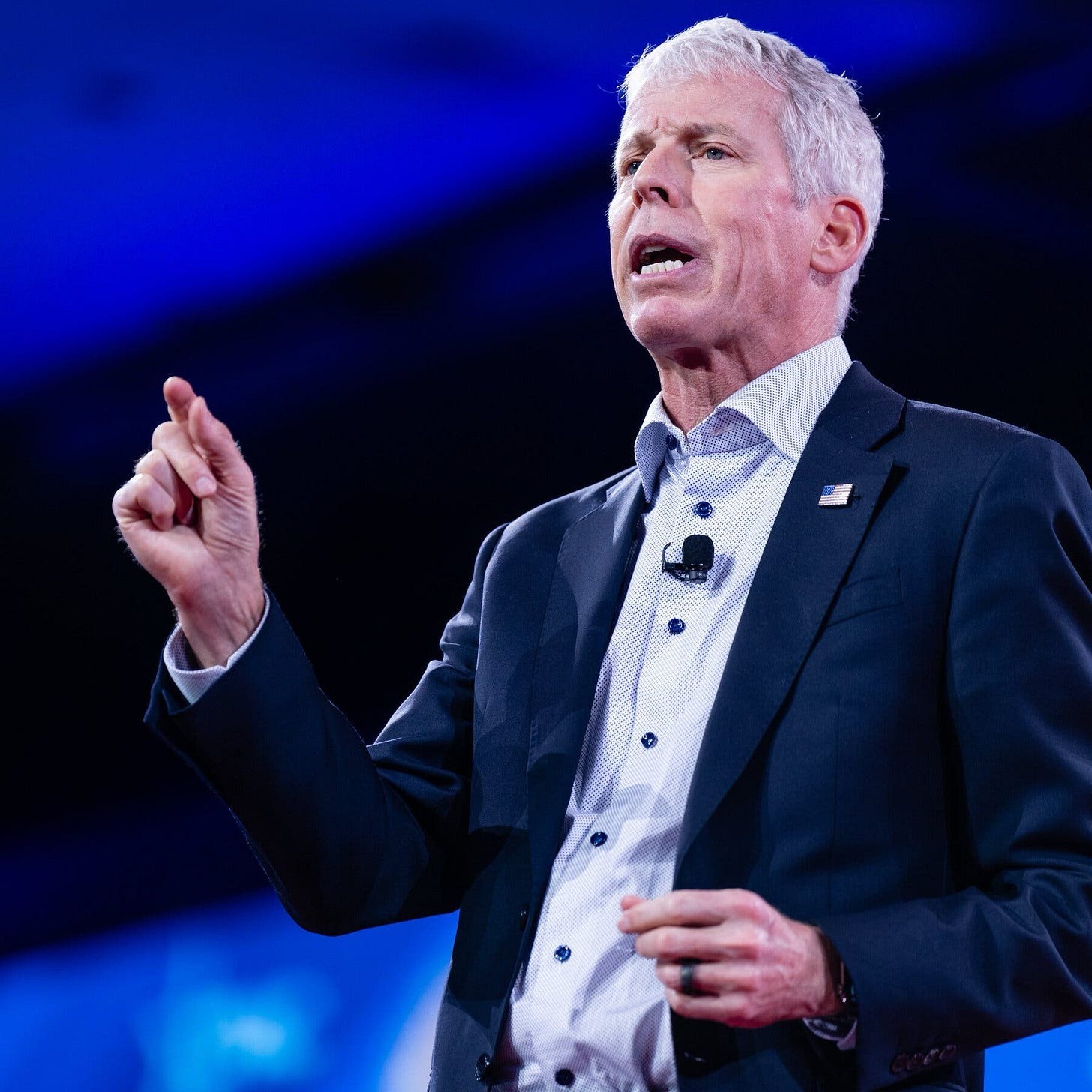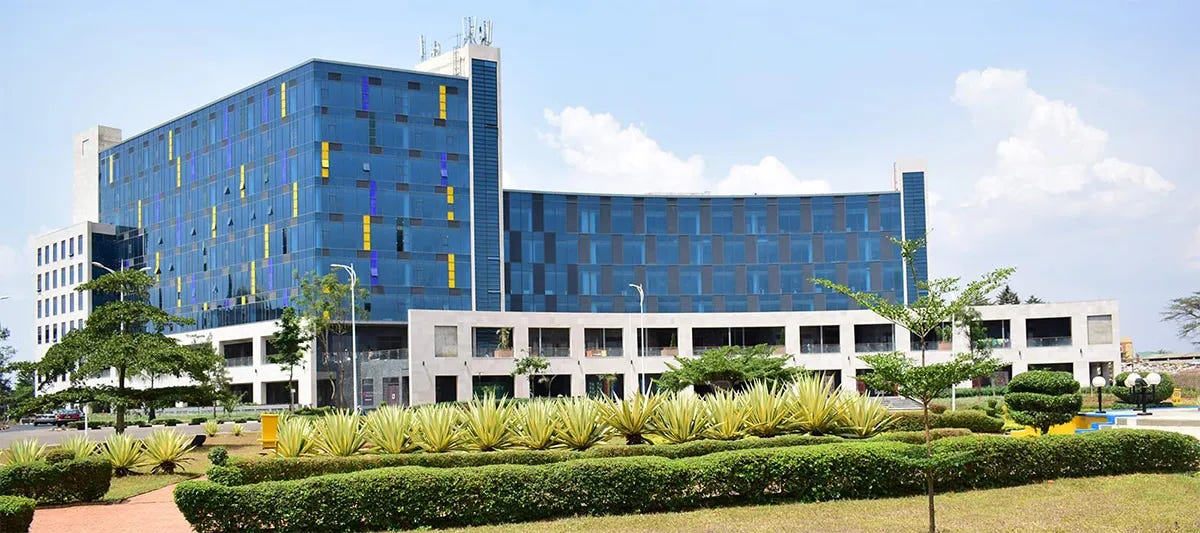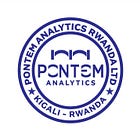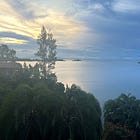Rwanda’s Oil Discovery
A Story of Vision, Timing, and Pontem’s Role in the Energy Future
A Beginning Rooted in Purpose
When Pontem Analytics set its sights on Rwanda, oil wasn’t even part of the equation. There were no seismic surveys making headlines, no whispers of hidden reservoirs. But we weren’t chasing oil—we were chasing opportunity, innovation, and a strategic base to serve Africa’s growing energy sector.
Recent speeches by Chris Wright, the new US energy secretary, remind us that there is no need to lecture Africa on energy policies—this continent is bursting with potential and should explore its resources to improve energy access.
“This government has no desire to tell you what you should do with your energy system.”
“It’s a paternalistic post-colonial attitude that I just can’t stand.”
Chris Wright, US Energy Secretary

At the CPAC conference, Chris Wright delivered an impassioned speech emphasizing that concerns over climate change should not hinder Africa's pursuit of fossil fuel development, addressing key issues related to energy poverty.
Energy poverty is one of Africa’s biggest challenges and is one of the reasons why we established in Africa. Millions of people still lack reliable access to electricity, and without energy, industrialization remains a dream. While the oil and gas conversation has always centered around the big players—Nigeria, Angola, Algeria—our approach at Pontem has always been different. Africa’s energy future isn’t just about oil-rich nations; it’s about strategic hubs where technology, infrastructure, and talent come together.
That’s what led us to Rwanda. Pontem Analytics is based in Kigali Heights, a prime location near the Kigali Convention Center and Radisson Blu, alongside major organizations like the Israel Embassy, Maersk, and Mastercard Foundation.
Why Rwanda? The Unconventional Choice
At the time we made our move, Rwanda had no known oil reserves. No exploratory wells, no proven fields. But we saw something bigger than oil: a country determined to lead in technology and innovation, a government focused on creating an enabling environment for businesses, and a talent pool eager to push boundaries.
Rwanda’s location was another key factor. With RwandAir expanding its reach to major oil and gas hubs, Kigali became a natural gateway for accessing opportunities across Africa. It offered a level of connectivity and ease of doing business that few countries could match.
Pontem Analytics chose Rwanda in part due to its rich talent pool, bolstered by the World Bank’s African Center of Excellence in Data Science at the University of Rwanda, which trains top-tier professionals in digital and technical fields. We are actively collaborating with the Center, recruiting graduates, offering internships, and working on joint research to drive innovation in energy, minerals, and industrial performance.
But beyond logistics, what excited us most was Rwanda’s commitment to digital transformation. Pontem specializes in leveraging data, engineering, and fundamental science to optimize oil and gas operations. And Rwanda, with its investments in AI, automation, and smart industries, felt like a natural fit for our ambitions.
So, we set up here—not because of oil, but because of potential.
The Discovery: Rwanda Joins the Oil Club
Fast forward to today, and Rwanda has officially joined the league of oil-producing nations. Multiple sources, including Business Insider Africa, Rwanda Dispatch, and Taarifa, have reported on the discovery, confirming the presence of significant oil reserves.
This changes everything.
The presence of oil is one thing. Determining if it can be commercially produced is another. This will require deeper exploration, drilling of test wells, and substantial investment from private sector players willing to take the plunge. If successful, the impact could be transformative—boosting energy security, creating jobs, and accelerating Rwanda’s industrialization.
As Francis Kamanzi, CEO of the Rwanda Mines, Petroleum, and Gas Board, put it:
“The good news is that we have oil. Preliminary research in Lake Kivu revealed 13 wells with signs of oil”
“Our Lake Kivu is deeper than other lakes in the region, so we might have more oil than our neighbors”
Francis Kamanzi, CEO Rwanda Mines, Petroleum, and Gas Board
So, what’s next? The initial studies have been promising, but the real test lies in drilling. So far, research has confirmed the presence of oil at depths of up to 480 meters, but deeper drilling is needed to assess the quality, quantity, and commercial viability of these reserves.
Drilling is no small feat—it comes at a steep cost. A single exploratory well could cost upwards of $15 million (Frw 20 billion), and further phases of exploration are estimated to require between Frw 8 billion and Frw 10 billion. Advanced equipment will be necessary to map the lakebed, pinpoint reserves, and determine extraction feasibility. And beyond cost, there’s the technical challenge of reservoir management, ensuring optimal production without wasting resources.
That’s where Pontem comes in.
The Lake Kivu Connection
Long before oil entered the conversation, we were already looking at Rwanda’s unique energy landscape. Tommy Golczynski, our co-founder, wrote a deep-dive article on Lake Kivu, one of the world’s most intriguing energy reservoirs.
Lake Kivu is no ordinary lake. Beneath its calm surface lies a vast deposit of dissolved methane, a resource that could fuel Rwanda’s energy ambitions for decades. But it’s a double-edged sword—left unchecked, this gas buildup could lead to a catastrophic limnic eruption. Managing this delicate balance requires science, engineering, and innovation.
In 2012, the BBC generated this fairly high-level schematic of the technology. Using “straws” to draw up the gas-saturated deep waters, the gases are extracted from the water and sent via pipeline to shore, where they are converted to power (or compressed natural gas, CNG, as the case for the Gasmeth project).
The process on Lake Kivu involves a similar method:
Dissolved gas-rich waters are drawn up to the surface via piping conduits to offshore floating barges.
As the water ascends and the pressure is reduced, the gas begins to evolve (a very similar process to what scuba divers experience, where gas expansion can lead to ‘the bends’).
At the surface, the gas is recovered and sent through extraction membranes to purify the methane (CH4) and remove/capture the carbon dioxide (CO2).
CO2 is re-injected back into the lake waters, while the CH4 is sent to shore via pipeline.
Onshore, the methane is converted into compressed natural gas (CNG)
The project was successfully commissioned and hooked-up of the Shema Power Lake Kivu (SPLK) methane plant in early 2023. Currently operating at ~37.5 MW, the facility plans to expand to 56 MW in 2024.
Subsequent to Rwanda’s steps to extract methane, additional projects have been undertaken on Lake Kivu. Most recently, the Democratic Republic of Congo (DRC) commissioned US-based Symbion Power to develop a similar gas-to-power project on the north side of Lake Kivu.
Tommy’s article wasn’t just technical—it was poetic. He waxed lyrical about the lake’s potential, the mystery of its depths, and the energy promise it held for Rwanda. At the time, our focus was on methane extraction and how Rwanda could tap into it safely and sustainably.
Looking back, that article feels like a prelude to something bigger. Because now, Rwanda has struck oil.
Pontem’s Role in Rwanda’s Energy Future
Pontem Analytics is ready to help Rwanda navigate this new chapter. At Pontem, we’ve spent years helping clients navigate the complexities of oil and gas operations using digitalization, data analytics, and engineering expertise. With our recently expanded reservoir and subsurface capabilities, we are well-equipped to support the Rwandan government in this process—offering consultancy services that range from feasibility studies to reservoir modeling.
For private investors looking at Rwanda as an exploration opportunity, Pontem provides the expertise needed to evaluate risks, interpret data, and make informed investment decisions. Our new subsurface division, led by Ross Adams, brings decades of reservoir engineering experience to the table. Ross Adams was introduced in the article below.
To summarize, here’s how we can help:
Technical Reservoir Expertise – We provide cutting-edge reservoir engineering consultancy to help Rwanda understand its oil reserves, optimize recovery, and plan long-term production strategies.
Investor Engagement & Advisory – With our deep industry knowledge, we can help Rwanda structure engagements with potential investors, ensuring the right technical and commercial decisions are made.
Infrastructure Planning & Asset Integrity – Building the right infrastructure is key. We bring expertise in designing, monitoring, and maintaining oil and gas assets for long-term efficiency and safety.
Environmental & Emissions Monitoring – Oil production must be sustainable. Our digital tools help track emissions, mitigate environmental risks, and ensure compliance with global standards.
Talent Development & Knowledge Transfer – Rwanda’s future in oil depends on its people. We’re committed to building local expertise in reservoir engineering, digital oilfield technologies, and production optimization.
Looking Ahead
Pontem came to Rwanda before the oil, before the headlines, before the rush. We believed in its potential as an energy and technology hub. Now, with this new discovery, the stakes are higher, and the opportunities are greater.
Rwanda stands at the beginning of something transformational. With the right expertise, investment, and strategic planning, this discovery can reshape the country’s energy landscape. And Pontem Analytics is here to make sure Rwanda gets it right—technically, commercially, and sustainably.
From Lake Kivu’s methane to the newly discovered oil reserves, we’ve been watching, analyzing, and preparing. Now, it’s time to turn vision into reality.
And we’re just getting started.







